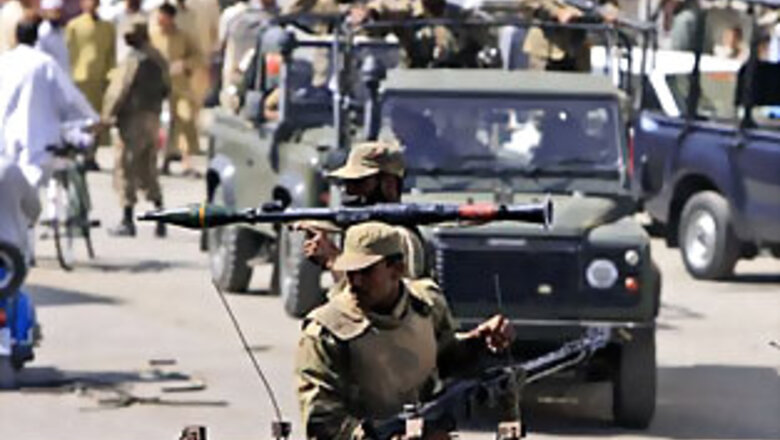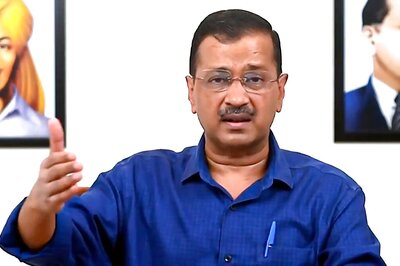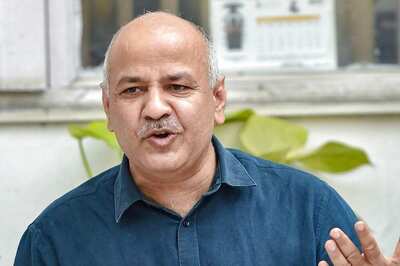
views
Islamabad: A suicide car bombing targeting Pakistani troops killed 41 people Monday, the fourth grisly militant attack in just over a week, as the Taliban pledged to mobilize fighters across the country for more strikes.
The Taliban also claimed responsibility for the 22-hour weekend attack on the nation's heavily fortified army headquarters, saying a cell from Pakistan's most populous province carried out the raid.
The announcement that a Punjabi faction of the Pakistani Taliban was behind that strike is a sign the insurgents have forged links with militants outside their main strongholds in Pashtun areas close to the Afghan border, increasing their potency. It came as the army prepared for what will likely be a long and bloody offensive against the major base of the Taliban in the border region of South Waziristan.
In advance of that offensive, the militants have launched a wave of attacks across the country.
In the latest attack, a suicide bomber detonated a car packed with explosives near an army vehicle in a market in the northwest Shangla district, provincial Information Minister Mian Iftikhar Hussain said. The attack killed 41, including six security officers, and wounded 45 other people, he said. There was no immediate claim of responsibility.
"Such attacks cannot deter us from the offensive against the militants," Hussain said. "We will continue our fight till the death of the last terrorist."
Shangla lies east of Swat, which has been the focus of an intense military operation against the Taliban. The army says it has largely cleared the valley of the insurgents, but the bombing demonstrated their continuing ability to mount deadly attacks there. Many Taliban are believed to have melted into the rural areas or gone to neighboring districts.
The recent string of bloody attacks began last week when a suicide bomber blew himself up inside a heavily guarded U.N. aid agency in the heart of the capital, Islamabad, killing five staffers. On Friday, a suspected militant detonated an explosives-laden car in the middle of a busy market in the northwestern city of Peshawar, killing 53 people. Those attacks were followed by the raid on army headquarters in the city of Rawalpindi on Saturday.
Taliban spokesman Azam Tariq called The Associated Press and said the assault on army headquarters, which left 20 people dead, was only the first in a planned wave of strikes intended to avenge the killing of Pakistani Taliban chief Baitullah Mehsud in a CIA missile strike in August.
"This was our first small effort and a present to the Pakistani and American governments," he said.
He said the raid on army headquarters was carried out by the "Punjabi faction" of the militant group and it had given orders to militant branches in Pakistan's other provinces — Sindh, Baluchistan and the Northwest Frontier Province — to launch similar operations.
While membership of Pakistan's militant groups has always been overlapping, the prospect of them joining forces will alarm the government of the nuclear-armed nation as well as its Western allies, which needs a stable Pakistan to defeat insurgents in neighboring Afghanistan.
The standoff at army headquarters followed warnings from police as early as July that militants from western border areas were joining those in the central Punjab province in plans for a bold attack on army headquarters.
The suspected ringleader in the raid, a Punjabi known as Aqeel, also was believed to have orchestrated an ambush on Sri Lanka's visiting cricket team in Lahore this year.
Also Monday, the Lahore High Court told police to toss out two criminal cases against a hardline cleric India blames for the last year's deadly siege of Mumbai, an official said.
Police had accused Hafiz Saeed of illegally holding a public gathering and raising funds for a group they say was banned. The cases appeared designed to keep Saeed under some sort of detention while Pakistan probes his alleged role in the November attack that killed 166 people.
But government prosecutor Malik Abdul Aziz said the court found there was no proof the government ever technically banned the group, Jamaat-ud-Dawa. Saeed says Jamaat is a charity, but the U.N. has described it as a front for the militant group suspected in the siege, Lashkar-e-Taiba.




















Comments
0 comment